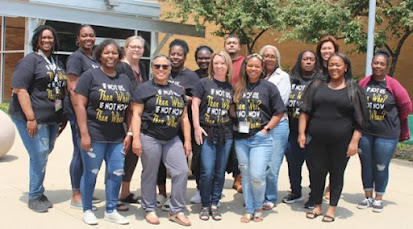FCCS Searches for Kin Far and Wide
FCCS Searches for Kin Far and Wide
When family unity is threatened, even temporarily, Franklin County Children Services is often mandated to step in to find suitable housing for the children while their parents work out their issues.
Social workers in the FCCS Kinship Program use the latest tools, genograms, and investigative work to find family members or close family friends who can provide a loving, stable home.
Finding potential kinship caregivers is specialized work. “The model is not only technology-based but rooted in the values of family research and engagement,” said Amy Wood, director of the agency’s Placement and Provider Services department.
Specialists in her department use online search engines, paid databases, and family interviews to map out a family tree and then start making contacts.
Franklin County Children Services makes it a priority to place children with kin when possible. More than one third of children who must leave home are initially placed with kin.
While most local kinship relatives can be identified by an interview with the parties, a Kinnect to Family specialist tackles the tougher cases using an intense genetic family tree, created by a special program.
“I’m usually assigned two cases at a time and while our staff can find two to eight family members, I have to find a minimum of 80 family members,” Kinnect to Family Specialist Sarah Laboiteau said about her state grant. She uses a GenoPro database, Facebook messenger, and outreach efforts to map out the family history of each youth. Her searches may involve newspaper obituaries, state records, and online people finders.
Last year, FCCS served more than 3,000 young people in agency custody and more than 1,316 were placed with relatives or other kin.
Offering Support for Kinship Families
Taking on the responsibility of caring for someone else’s children can be daunting, even if the child is close to you. Luckily, there is a lot of help for kinship families.
The Children Services kinship program offers families with open cases services including:
- Financial support
- An orientation program
- Home visits to provide support and guidance
- Linkage to community resources
- Workshops and support groups
- Possible material assistance, such as bedding, car seats, or a clothing stipend for the children
- Medical care (typically provided by government programs)
There are other ways to find help in our community. According to FCCS Kinship Caseworker Natasha Lawhorn, “There are many resources available to families based on income or need. A good place to start is OhioKAN.”
The Ohio Kinship and Adoption Navigator (OhioKAN) is a free service that links kinship and adoptive families with resources concerning health, social support, childcare, education, finances, caregiver support, and more.
Kinship families may also qualify to receive KGAP (Guardianship) or KPI (Permanency) stipends to help with monthly expenses, state food vouchers and benefit cards, and school and childcare assistance. Visit our Kinship webpage for more information.




Comments
Post a Comment